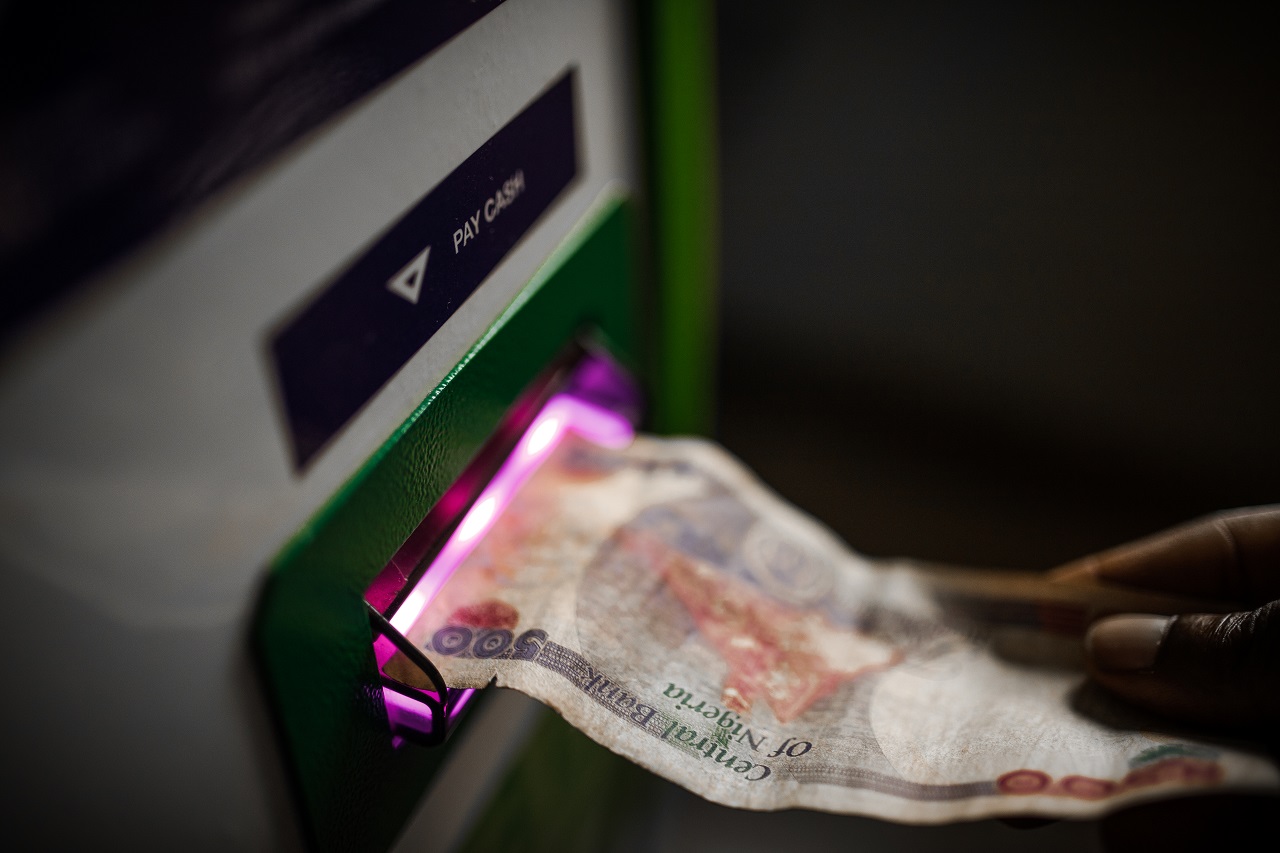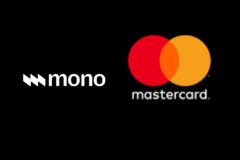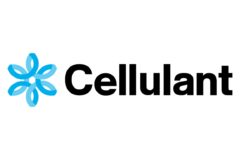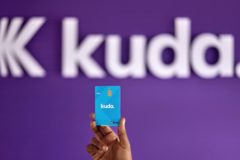When George Manuwuike approached the final stages of bidding for a project with the Nigerian government in 2015, he didn’t expect the process to be such an ordeal. The agrochemical export company director had been living in Europe for the past 35 years, and was accustomed to having easy access to financial services.
It didn’t take long for him to realise that wouldn’t be the case in Nigeria.
“I was disappointed when I couldn’t conclude a payment for a government tender in the bank, on a Friday, due to the cumbersome process of generating the required payment code at the time,” Manuwuike, 55, tells TechCabal via email.
“Travelling back to the bank to finalise the payment was very frustrating and time-consuming,” he added. It took nearly two hours to conclude the process.
Manuwuike’s hassle wound up serving as the inspiration for nibox, a payments company he founded the following year in 2016. Following approval by the Nigeria Inter-Bank Settlement System (NIBSS), the Nigerian company that supervises interbank payments, nibox is set to officially launch a new slate of self-service kiosks, a hybrid of ATMs and point-of-sale machines, that it hopes will meet the demand of Nigeria’s largely cash-based population for financial services that are only available online.
Nigeria falls short of financial inclusion goals
Banking in Nigeria has a long, tiring history of badly-run banks, that under-invest in technology and a central bank that routinely oscillates between progress and shooting itself — and customers — in the foot, often leaving customers feeling frustrated.
Since Nigeria’s first ATM processed the first transaction in 1987, innovation in the financial services sector in the country has moved from building physical infrastructure to predominantly software-led models. These ”digital” banks allowed customers to open instant bank accounts, transfer money for free and access small loans. “Financial inclusion” became the go-to pitch deck headline touted by ambitious fintech founders, who raised grant and equity money to build sleek apps based on the promise.
To be fair, these smartphone apps are an innovation in their own right. But for all the innovation they’ve brought — features like overdrafts and home-delivered debit cards feel like luxuries — some have questioned whether these software-heavy solutions actually support financial inclusion. When you need a bank verification number (BVN) to open an account in Nigeria, but only licensed banks issue BVNs, then the only customers who benefit from these enhanced services are those who are already banked, leaving out the 55% of Nigerian adults who are not. The official goal was 80% by 2020.
“By focusing on enabling direct cash payments for services, nibox may be establishing itself as the on-ramp to financial services and consumables for the unbanked.”
When they were introduced, ATMs and subsequently PoS devices were expected to support the government’s financial inclusion goals. However, Nigeria has only 17 ATMs per 100,000 people per World Bank data. And the PoS powered agency banking model has failed to close the unbanked gap fast enough by serving as the onboarding ramp entrepreneurs hoped they would.
In February this year, The Guardian, a Nigerian newspaper reported on the growing cashback trend, “where PoS handlers trade cash for transfer to earn a ‘commission’.”
The report highlighted how agency banking is a convenient excuse for banks to outsource retail operations instead of helping to deepen financial inclusion. For nibox, this is an opportunity to help cash-bound people access financial services from its payment kiosks.
Financial inclusion does not mean having a bank account as much as it means wanting and having access to financial services.
The hard truth implied by this is that the market value of the unbanked is marginal regardless of the population size. The unbanked barely have anything to put away after spending their income. This means that bringing these people into the financial system needs a different route—a non-bank route with significant ties to how the unbanked live, work, and consume.
By focusing on enabling direct cash payments for services, nibox may be establishing itself as the on-ramp to financial services and consumables for the unbanked. At least to the extent that these services like utilities are indispensable. In Kubwa, a suburb in Abuja with a population of at least 776,298 per dated 2006 census figures, there are only 12 commercial banks. So thousands of residents mob the waterboard office twice a month to pay their monthly water bills. The two nibox kiosks in the location handle the peak traffic for waterboard payments and the subsequent purchases of airtime, cable TV subscriptions, and other products.
Previously, residents would need to go to the bank, then visit a roadside cyber cafe to print a payment slip before coming back to the waterboard to complete the transaction. This could take more than an hour whereas a nibox transaction can be completed in 3 minutes.
Payment kiosks entered the Russian market in the early 2000s and evolved from airtime top-up channels to e-wallet top-up, then to local and cross-border money transfer channels, payment terminals for utilities, entertainment subscription payments, and even ecommerce or in-store payments.
By 2013, Qiwi a payments company that launched in 2004 already operated 169,000 of these terminals and handled up to $14 billion in transfers.
However, the Russian machines failed to scale in Western markets, but they are popular in Ukraine and parts of eastern Europe. Self-service kiosks are also a core part of South African challenger digital bank, Tymebank’s business. With 3 million users and 700 kiosks (in 2021) mostly located in Pick n Pay and Boxer stores, Tymebank’s kiosks allow users to create accounts, add money from existing accounts to a wallet, and vend personalised debit cards.
nibox ultimately wants to replicate this but with a strong emphasis on enabling utility payments, customer to government payments and providing access through its partnership with Interswitch and other payment service providers to a suite of over 3,000 financial services online. But API integrations are frequently down. nibox CPO, Brian Manuwuike, says they hope to be able to directly offer these services in the future.
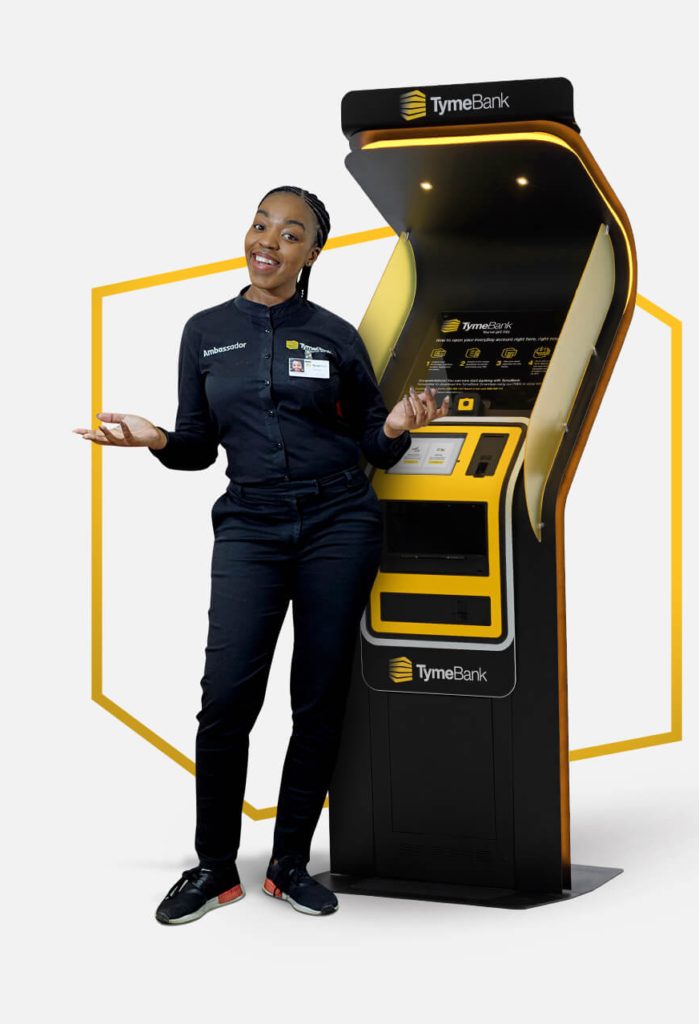
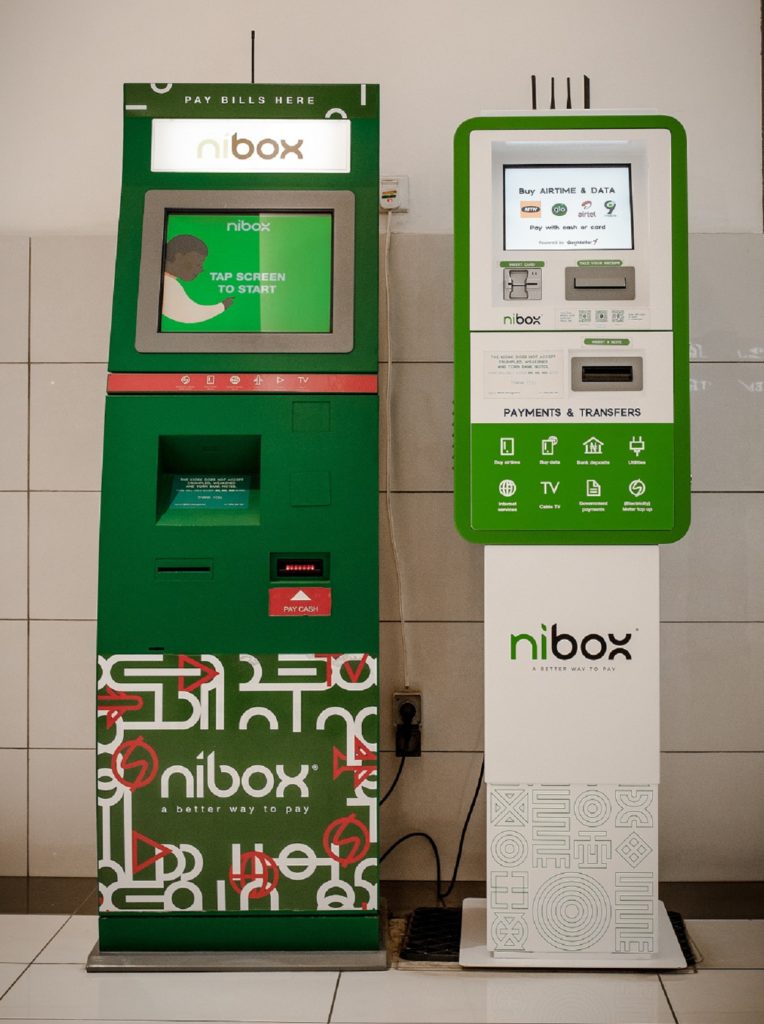
To fin-clude or not
The answer, Manuwuike explains, was to build and distribute a network of payment kiosks that allowed users to seamlessly pay for government services without having to travel back and forth with payment slips like he had had to. nibox already serves as a payment channel for a host of government services in Nigeria’s capital, Abuja. The terminal, located in NIMC’s office at the Federal Secretariat in Central Business District, Abuja, serves as a combination ATM and payment channel for visitors and staff alike. NIMC was nibox’s first major integration.
Says Brian, “We partner with NIMC, NIPOST [the Nigerian Postal Service], CAC [Corporate Affairs Commission], and FCT Waterboard for service vending and physical distribution to achieve a nationwide scale and establish ourselves with strategic public partners. This way, we will build trust in our services amongst Nigerians and independent agents.”
The conventional wisdom is that the best route to a digital or a cashless society is by enabling digital payments. Most Nigerians, however, make and hold their wealth in physical cash and credit is a mostly unknown beast, except for esusu, the popular informal credit associations. Only agency banking offers the closest direct cash-to-digital channel. nibox terminals essentially replace the traditional agent.
But accepting physical cash is tricky. Currency notes are frequently dirty or torn; even the Central Bank of Nigeria has threatened to punish banks that accept dirty notes.
nibox kiosks have to be constantly calibrated to understand what to accept and what to reject by comparing what is acceptable at banks and in street shops with what isn’t. For example, the nibox at the NIMC office in the Federal Secretariat complex did not accept my dirty ₦500 note. Brian says the company is constantly training its machines to decide which Naira note to accept and improve acceptance rates. Currently, nibox kiosks with cash deposits enabled, he tells TechCabal, accept more than 90% of the cash they are fed.
Barring operational issues like this, self-service kiosks like nibox are an exotic way to allow cash payments to remain a viable payment option while digitising cash flow and introducing new possibilities for extending financial services to previously unbanked users.
Since financial inclusion is an organic process that gains momentum from income-generating activities—when people earn and can spend beyond the bare necessities, they will seek to be included. In addition, cash transfer accounts are usually limited to withdrawals. This is partly why top-down programmes like government cash transfer schemes usually fail to reach financial inclusion goals according to research from the Consultative Group to Assist the Poor (CGAP).
Cash-to-digital infrastructure for Nigeria: inside the nibox “ecosystem”
When you use a nibox kiosk once, you automatically create a tier 1 wallet that allows you to deposit up to ₦50,000 in a single transaction. With 70,000 unique customers in beta, nibox says it has processed over $1.8 million in gross-transaction-value (GTV). Last year it was part of the 2021 Inclusive Fintech 50 cohort and plans to deploy kiosks in all 4,000 locations across the country. According to Brian, the firm is also completing arrangements for a microFinance bank licence.
The kiosks themselves are being upgraded. nibox plans to distribute them via a franchising play and will make money by sharing the marginal profit from transactions with its franchisees in addition to selling ad space on its terminal interfaces. This revenue is separate from its wallet and peer-to-peer transfer offerings. It also plans to offer and cross-sell proprietary products to its users.
Brian tells TechCabal that it is already in talks with super franchisees to cover large areas in northern Nigeria.
As the company plans to expand across Nigeria, it recently appointed Mahey Rasheed, a former Deputy Governor of the Central Bank of Nigeria (CBN) as board chairman. A deft move that seems designed to help shore up its regulatory flank.
Still, for nibox kiosks to match the scale at which PoS are used—not owned—they will need to scale beyond simply serving as payment points for government services. Of course, PoS scale for nibox may not mean deploying thousands of kiosks— Instead, it might boil down to how well self-serve kiosks can serve consumer and bill payments at scale at high-traffic locations.
Since nibox is not the only firm trying to include the financially excluded—telecoms giants like Airtel and MTN have their eyes on payment service bank licenses—the “phygital” firm faces the uphill task of driving adoption in a world where every fintech wants your kobo change.
No doubt the model and route to digitising cash are worlds apart. Still, the core offering and target market are more or less the same—access to financial services made easy. Accelerating the cash-to-digital wave by driving off the beaten path can be the edge nibox holds— if it can give and coax value from cash-bound Nigerians.
In the end, influencing behaviour is where the battle will be fought. And since behaviour, like nectar seeking bees, follows convenience, providing convenience at scale, and especially for underserved communities, is a bet the nibox team is willing to make.
Editor’s note: This article has been updated to remove references to one of Nibox’s partners.







